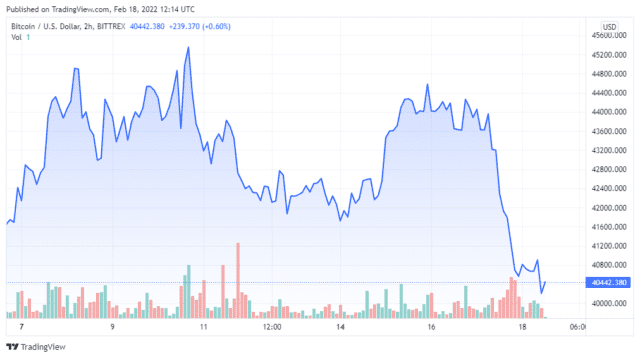The WSJ proves once again that the Bitcoin Law in El Salvador is still the story of the century. Their latest article about it is… a little one-sided. The WSJ and other legacy publications are losing their minds. The press could focus on the legitimate criticism that President Bukele’s government gets, but no, they have to mix it with saltines, bitcoin clichés, and backhanded compliments.
Related Reading | From The Ground: A Salvadoran With The Latest On Chivo Wallet And BTC Education
In “Can Bitcoin Be a National Currency? El Salvador Is Trying to Find Out,” the WSJ loaded their guns and came at bitcoin with their most sophisticated one-liners.
Examples Of How Loaded The WSJ Article Is
- They say El Salvador is a test case for “how far crypto can go beyond its current status as a popular speculative investment and unregulated means of exchange.”
First of all, you’re talking about Bitcoin and not about crypto. Don’t mix them up. Secondly, is that its current status? Or is it the most exciting thing to happen in finance in the last 100 years?
- The WSJ says that El Salvador declared Bitcoin legal tender “to cash in on the crypto craze.”
Stop it. It’s Bitcoin, it’s not crypto. Secondly, maybe President Bukele declared Bitcoin legal tender to plug El Salvador to the dominant open monetary network. And, by doing so, front-ran every other country by years.
- The WSJ said with a straight face, “Since bitcoin’s adoption as currency, its use in day-to-day transactions has been rare.”
The Bitcoin Law’s launch was less than ideal and there is a lot to legitimate criticize, but the WSJ goes with “day-to-day transactions has been rare.” When we know there are lines in front of every Chivo ATM. And we have all of these testimonies of real people from the ground.
- About Bitcoin, the WSJ says, “but the crypto asset lacks the economic fundamentals to support its value, and it trades entirely on sentiment.”
First of all, it’s Bitcoin and not a “crypto asset.” Secondly, it excels in all of the economic fundamentals. It does trade on sentiment, though. You got bitcoin there.
Extreme Views, The Sequel
- This is an actual quote from the article: “In the port city of La Union, near the site where Bitcoin City is slated to be built, 42-year-old fisherman and boat tour operator Luis Robles said he hoped new development in his region—along a prime drug-trafficking route—would mean more work for him.”
What the h*ll does “along a prime drug-trafficking route” has to do with anything that the WSJ is describing? This is what we mean by “loaded.”
- This is another direct quote: “The president, a former nightclub owner and marketing executive, is gambling with taxpayers’ money in an attempt to keep up high levels of public spending that are a key ingredient to his popularity, said Carlos Acevedo, former governor of El Salvador’s central bank.”
First of all, he’s only “gambling” if he loses. An alternative view would be that he’s investing El Salvador’s money in the hardest asset that mankind has ever created, years after his colleagues.
- The WSJ claims that “most Chivo e-wallet users took the free bitcoin and cashed it out for dollars, according to financial-sector executives. Others allege their money in Chivo vanished through fraud.”
Well, it was free money. That’s what happens. People misspend it and it attracts fraudsters.
- “Bitcoin could add a special risk for El Salvador, which has long been known as a home to criminal gangs that also have an extensive presence in the U.S. Bitcoin’s decentralized system opens doors to anonymous and illicit transactions, like money laundering, tax evasion or ransom payments, economists say.”
Yes, Bitcoin is money for your enemies. That’s the value proposition. That’s what guarantees that your friends can use it too.
BTC price chart for 02/18/2022 on Bittrex | Source: BTC/USD on TradingView.com
Valid Bukele Criticism
A controversial character, President Bukele attracts criticism. The WSJ article presents some valid ones:
“In less than three years in office, Mr. Bukele has moved fast to remake his country. He has removed judges and stacked the courts with his supporters, harassed journalists reporting on corruption and clashed with the Biden administration over Mr. Bukele’s efforts to cement power.”
However, is that the most common reason why the Biden administration clashed with Bukele?
Gladstein, Mow, And Keiser Enter The WSJ Article
The article quotes The Human Rights Foundation’s Alex Gladstein going hard on the President, “It’s difficult because you don’t want to support the Bukele administration while they dismantle democratic institutions faster than Hugo Chávez.” They also quote Blockstream’s Samson Mow, “The more important thing for me is to look for the positive aspects, which is that there is this president that’s trying to lift this country out of poverty. I don’t need to agree with him 100%.”
https://twitter.com/gladstein/status/1494339470551699467
Other valid critiques from the WSJ article:
“Opponents and rights groups say he has grabbed power by firing his attorney general, and by firing the justices of the country’s top court and dozens of judges in lower tribunals so he could stack the judiciary. He also had the Supreme Court reinterpret the constitution to allow him to run for a second term.”
Related Reading | From The Ground: The Bitcoin Italia Podcast Visits El Zonte AKA Bitcoin Beach
However, not everyone agrees. El Salvador resident Max Keiser reacted to the WSJ piece by saying Glaldstein is “being used by a US propaganda outlet to push CIA talking points. Not a good look, IMO.” To that, the HRF head said, “Bitcoin adoption = great. Stacking the Supreme Court with loyalists so that you can violate the constitution and stay in power longer = bad.”
This is the kind of debate we want to see. A balanced, fact-based one. But with an edge.
Featured Image distelAPPArath on Pixabay | Charts by TradingView


